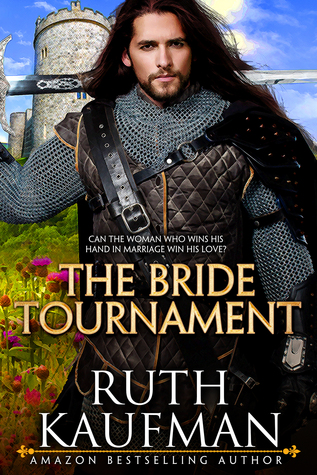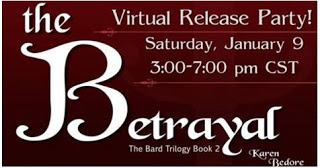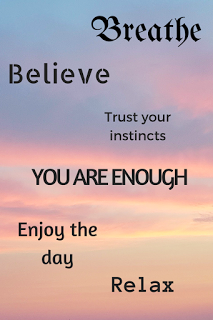Instead of being my usual Scrinchy (Scrooge and Grinch) self this time of year because of all of the muss and fuss, I’m going to focus on why I’m grateful for the holidays:
For my fellow Scrinches (Scrooge + Grinch)
I am a Scrinch–part Scrooge, part Grinch–someone who doesn’t love the holidays. In part it’s because of how the hustle-bustle of decorating, cookie making, gift buying and giving, party throwing and attending takes over everything else. I’ve already received emails and seen posts about offices closing until January 4. While those who are Gainfully Employed with paid holidays may appreciate all of the downtime and getting paid to take time off, as a feelancing Gainfully Unemployed, I see two weeks without auditions and paying work.
However, I am awaiting the final script for a small VO job, and I have what could be an exciting writing assignment–more on that later.
In part, I admit I feel pressure–to give great gifts and have a wonderful time. What are YOU doing for the holidays? New Year’s Eve? Thankfully, I already have fun NYE plans. Whew.
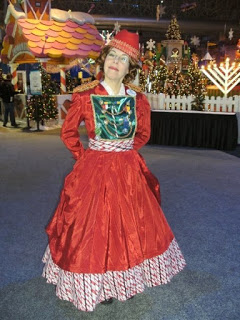 Several years ago I had a true story published in an anthology. My Scrinchiness abated in 2009 when I portrayed Major Nougat at Winter Wonderfest, a vast indoor holiday amusement park filled with amazing decorations. Interacting and improvising with kids and seeing their true wonder made me appreciate that season.
Several years ago I had a true story published in an anthology. My Scrinchiness abated in 2009 when I portrayed Major Nougat at Winter Wonderfest, a vast indoor holiday amusement park filled with amazing decorations. Interacting and improvising with kids and seeing their true wonder made me appreciate that season.
One thing I do like to do during the holidays is go through all of my drawers, cabinets and closets. Organizing and donating is one way to start the new year fresh with my best foot forward.
How do you feel about the holidays?
Getting out the word about my new release, THE BRIDE TOURNAMENT
My third book, THE BRIDE TOURNAMENT, releases January 7, 2016. I’m seeking cost-effective ways to get the word out. Amazon shows 1,434 historical romance releases in the past 30 days, so it can be easy to get lost in the crowd. How much time and money am I willing to spend, and how do I predict the best return on my investment?
I’m offering a Goodreads giveaway, during which members can enter to win one of three print copies. Perhaps some of those who sign up will be interested enough to buy it or one of my other books. So far 52 people have entered, with 27 days to go. My investment: Time: less than half an hour Cost: 3 paperbacks + shipping.
Goodreads Book Giveaway
The Bride Tournament
by Ruth Kaufman
See the giveaway details
at Goodreads.
I’ll be participating in a Facebook party on January 9 in conjunction with another author’s release. Readers can stop by, chat online with authors and comment to win giveaways. I’ll be hosting from 3:30-4:00. Time: half an hour to 4 hours. Cost: whatever I decide to give away.
Reviews: Tracking down reviewers can be time consuming, and costly. Publishers Weekly’s BookLife doesn’t charge, but doesn’t accept that many books, either. I’m fortunate that my first two books were accepted. Time will tell it they’ll review TBT, also.
Kirkus charges $425 with 7-9 week delivery, as does RT Review Source. There are dozens of other places, but each has a separate submission process and time frame, with no guarantee of review. There’s also no guarantee that any review will be good or include a short, well-worded compliment I could use on, say, a bookmark or my website.
And it’s hard to measure the impact even a great review has on potential readers. But you need some reviews if you want to participate in certain promotional publications (amounts and ranking, for example over 4 Amazon stars, vary). And I doubt many readers like coming across a book with no reviews.
Many authors say writing great books is the most important thing. I wouldn’t release a book if I didn’t think it was great, but will readers agree?
Stay tuned….
How do you define success?
I ended National Novel Writing Month with 35,107 words, or more than 1,000 (around 5 pages) a day. That may sound like a lot, and is definitely more than I’d have written without the NaNo process. Yet via social media, I know many not only “won” NaNo by achieving 50,000 words, some wrote over 100,000! I participated in a Romance Writers of America word war that had over 8,000,000 words written by 278 participants.
We’re not supposed to compare ourselves to others. Happiness comes from within. No regrets. Blah blah blah. The question is: how much should I have done in NaNo or do in other pursuits to experience the satisfaction of success? Perhaps I could have pushed harder…not gone out with that friend, watched that TV show, run those errands until I hit my daily goal of 1,667 words. Should I have kept BICHOK (butt in chair, hands on keyboard) until I reached 50K? Or should I be pleased with what I did accomplish, and accept that putting in some, even significant, effort is success?
Certainly there are true emergencies that prevent us from succeeding. And everyone faces what my romance writing chapter calls life intrusions…day job deadlines, family issues that need taking care of sooner rather than later. Some succumb to these as reasons they can’t get this or that done, while others take them in stride and accomplish what they set out to do anyway.
What’s the point of setting goals if you don’t care when you don’t achieve them? I don’t accept that they’re mere benchmarks to make sure we do something rather than nothing. Not that we should beat ourselves up if we come up short, but how do you learn to pace and discipline yourself for the next reasonable goal?
Of course, what qualifies as success to one may not be enough for another. Many NaNo winners and participants either don’t finish that novel or do anything with it if they do. Some may enjoy the process and being part of the NaNo community year after year. Not everyone wants to make the effort involved to publish and sell books. Others may ponder all of those words languishing “under the bed.”
Many kids today get trophies for participating, not winning. Yet in the Olympics, athletes can lose out on a medal by a hundreth of a second. How many viewers remember those who aren’t on the podium, despite all of the effort needed to get that far?
I’m working on defining success for myself. If I’m being honest, 35,107 words isn’t an example of it.
Good intentions & gratitude: how much is enough?
On this day when Americans focus on giving thanks, I’m grateful for the bounty of food, family, friends and work I’ve had this year.
And I’m also grateful for me. Some may think that conceited. But I’m the one who gets up every morning, sits at my desk (usually by 7AM) and works to build a better life for myself despite the siren call of distractions from TV and books I want to read to errands that need running. Who picks herself up after rejection after rejection and setbacks and continues to believe she can earn a living as a full-time actor, author, writer and speaker.
Even so, negative thoughts sometimes stymie my good intentions to do more, work more, self-market more, write more, have a positive attitude. Putting positive energy into the world is preferable, as is being satisfied with what you have. But is what you’ve done enough?
An actor always needs more submissions, auditions and bookings. An author needs more sales and followers and accolades from contest wins to good reviews. A single person who wants a relationship needs to meet more people. A person on a diet may face a daily struggle to avoid their favorite fattening foods and to exercise more.
When things you truly want and things you’ve worked for elude you, sometimes life feels like an ongoing test. Have I done enough? How will you handle your reaction to lack of success? From the agent who says no to the jobs you didn’t book to not finding someone you want to date who wants to date you? The discipline required to exercise if you don’t enjoy it, to put in the hours to finish and then market that novel? Can you believe that persistence pays, winners never quit? Can you be grateful for all you do have?
Can you accept, just for today, that you’ve done enough and enjoy?
5 Tips for enjoying life while you’re waiting for news
As an actor and an author, I want to have many irons in the fire. I have some control over how many I send, but none over when information about those irons (such results of submissions to literary agents, auditions, callbacks, even the shoot schedule when I have a booking) will arrive, which can wreak havoc on my schedule and, somehow, at times, my brain. At the moment, I’m waiting on many fronts, including a very exciting and hugely challenging writing opportunity.
I’m not the only one who finds waiting difficult. An actor friend who was on check avail for a commercial posted more than once on social media, calling the waiting nerve wracking. Why is that, when you’re not actually doing anything? Maybe it’s the lack of control, uncertainty, or lack of closure.
Here are my Top 5 Tips to help you endure the waiting process:
1) Keep going. If you’ve submitted to an agent (whether literary or acting), their websites often list response times. But if that’s a month or 6 weeks, the urge to keep checking your email can be strong. And many say they only respond if interested, so you might not even get the closure of a rejection. Send out another submission. Finish other work. Staying busy and having more eggs in your basket gives you more opportunities and lessens the importance of each individual submission.
2) Accept that there’s nothing you can do to make the news come faster. And that often, it comes later than you expect, meaning you have to wait longer. Recently I was “on ice” for a small role in an industrial, a corporate video. Talent was asked to set aside multiple days…and I didn’t find out for several weeks that a) I was definitely booked b) when I’d shoot. I’m waiting for a shoot schedule for a commercial next weekend, which means other plans are on hold. It can be difficult not to get antsy, especially if things that can’t be changed, like theatre tickets, are involved. Realize this is part of the chaos of a feelancer’s life.
3) Be grateful and enjoy what you’ve achieved so far. You can’t win it if you’re not in it. But the bigger the opportunity, the harder waiting can be. My dream agent is interested in my book! I’m up for a national TV commercial! When I called a friend to congratulate her on being a RITA finalist (RWA’s version of the Oscar. The awards are presented at a black tie event with nearly 2,000 in attendance, including many industry professionals), the first thing she said was that she knew she wouldn’t win. What a way to downplay a huge honor thousands of romance authors wish for.
4) Nip social media envy in the bud. Seeing that a friend got a check avail/booked a job, got the call or got nominated for a huge award, can sting. You can still be happy for your friend while wondering, “When is my turn?” Of course, posts can be exaggerated, too. There may be days when it’s better to just stay off social media and focus on yourself. Everyone’s path is different. Luck and timing can play as big roles as talent and skill. You may yet book/get the thing you’re waiting for.
5) Know that no news doesn’t mean the world is ending or that door is closed. Having a slow couple of weeks as an actor and doesn’t mean all the casting directors hate you. Worrying for a short time is one thing. Dwelling/obsessing/what iffing is another. Don’t let waiting stymie you or allow you to carry the stress into other areas of your life.
NaNo day by day…or how I’m writing my next book
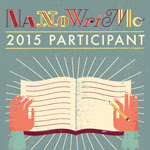
NaNo is here! This is the first time I’ve participated in National Novel Writing Month. I joined my region, added some buddies, thought about what to work on….
Day 1 I sat down at my desk early in the morning, eager to get some words in before going to my mom’s for lunch.
I love when I’m really in a character’s head and s/he says something I hadn’t thought of. Even if that changes the direction of the story.
More difficult than I thought Day 1 would be…I expected it to be a mind dump, where I’d spill all of my thoughts onto the page and get a lot of words right off the bat.
Day 2 Better. I want to write more than the 1,667 needed to meet the 50,000 word count goal and “win,” to stay ahead in case there’s a day I’m so busy I don’t want to write.
Day 3 Like pulling teeth. It took much too long to get the words down, and they were only coming in dribs and drabs. I have other work I need to do.
Day 4 Better flow. I’m happy with some of the scenes I’ve come up with, and am trying not to worry about the execution right now.
I seem to be focusing on plot and the fantasy element. I can add more romance after November, but I think having both at the same time helps me come up with ideas. When you have a multi-subgenre project like this one, it’s hard to know what balance will interest readers more.
In other writing news, I really want to be a hybrid author. For decades I’ve dreamed of getting “the call” from a traditional publisher who loves my work and wants to work with me. To that end, and because a successful author friend thinks my sales numbers thus far might be of interest to an agent, I queried a few with my new series…and already got a request from someone I’d love to have. So, yay to that. But, she’s read other projects over the years and passed, and I’ve heard this can be a tough subgenre, so less yay.
Day 5 Have a lot of other work to do, including an audition and some promo for my self-published books. Wrote a few words this morning. May have to finish word count tonight, which I’d rather not do….
10 Tips to prepare for NaNo!
 I’m participating in National Novel Writing Month, aka NaNoWriMo, aka NaNo, which starts
I’m participating in National Novel Writing Month, aka NaNoWriMo, aka NaNo, which starts
November first, for the first time. The goal is to write 50,000 words in a month. Here’s what I’ve done to prepare and what I recommend.
1) Cleared some tasks due in November off my plate, such as a writing column, to free up more time and brain space/energy to write. 2) Limited extraneous activities, while still making room for some social activities. I think some down time helps refill the well and lets the subconscious generate more ideas.
2) Limited extraneous activities, while still making room for some social activities. I think some down time helps refill the well and lets the subconscious generate more ideas.
3) Chose the project to work on and did a bit of preparation, such as jotting down thoughts.
However, I’m sorry to say I’m still waffling on this. I wanted to write the second book in my new series. But I keep wondering if I should choose a more popular romance subgenre or another project I’ve been wanting to work on.
4) Plan to write with a friend or go to a few write-ins, where participants gather at a coffee shop or other location to help each other stay on task and feel less isolated.
5) Told family/friends I’m doing this and that it’s important to me. I still have a few more people to tell.
6) Signed up online to keep track of my word count and put it out there publicly that I want to do this. They say goals should be written down and shared…. And there’s a lot of helpful information and encouragement on the NaNo site.
7) Put writing appointments on my calendar, especially mornings because I’m a morning person, so I can reach the 1,667 word count early in the day and even get ahead if I make more time to write later in the day. This approach should help in case I have to miss an entire day or two because of paying commitments.
8) Decided to bring my laptop or use the handy stylus on my phone when I’m on the bus so I can get in more words and time.
9) Joined a Word War, in which groups compete to complete the most words. To some this may add a layer of pressure, but I think it adds motivation. I don’t want to let my group down.
10) Believe I can do it.
Something I learned that surprised me: While there are very successful books written/begun during NaNo, the vast majority of participants and winners (those who complete the 50K in time), never even finish their projects. I mistakenly assumed that most people did NaNo to get a head start on something they wanted to complete and sell, rather than participate (and succeed) several years, but not finish any of the books.
What’s your best NaNo prep tip?
Top 10 reasons why your book isn’t selling
In the online writing groups I follow, one issue is brought up again and again: how hard it is for new self-published authors to sell any books at all, much less gain some traction.
2) Free reads! Some readers will return a .99 boxed set. Though just a few years ago we willingly went to a bookstore and paid $6.99 or more for a paperback, these days there are so many permafree and temporarily free books that paying even .99, much less $2.99, Amazon’s recommended sweet spot for my historical romances, can seem like a lit. Kindle Unlimited, which is $10/month, and Kindle Owners Lending Library are other options readers are choosing to lower their reading costs.
3) The rapid rise in book discount newsletters. I get at least 5 newsletters every day offering discounted, .99 or free books. I don’t have to search online but merely open and glance at the books available that day. With a click or two, that free book is mine. Even if I never read it. I couldn’t keep up with all of the free books I could get every day if I tried. These newsletters can be costly, so if you’re not selling, it can be hard to justify buying more ads.
4) What I call volume authors. There are some authors who are so prolific and successful that they can dominate the new releases or bestseller lists, making it harder for newbies to rise to the top. In one of my categories, 4 of the Top 10 bestsellers are by one author and 3 are by another. In some areas on Amazon, only the top three show up as recommendations, which I’m sure helps those books sell even more. These volume authors already have a huge following and promotional machine in place, which most new authors don’t.
5) The three bears syndrome. Novellas (usually under 40,000 words), shorter books and boxed sets (usually three or more books for .99) tend to dominate some bestseller lists, so that the standard full-length novel (300-400 pages) is no longer just right. Right now five boxed sets are in Top 10 medievals (I happen to have a book in the #2 box). In the Regency Top 10 are two boxed sets and four books under 300 pages (and that includes front/back matter and any excerpts) and one with 94 pages.
6) Reviews. Many newer authors may not be able to get reviews, so they can’t take out ads on sites that require a certain Amazon rating or number of reviews. Reviews can also be used on websites, in promotion, etc., but not if you don’t have any.
7) You only have one book. Everywhere I go, I hear that
a) one book is rarely enough. Some even advise waiting until you have four or five so you can set up a release schedule.
b) one release a year isn’t enough…to help get your name out there and keep the Amazon algorithms working in your favor. I’d planned to release four of my own books this year, but was invited to be in two boxed sets. So I had a new release every three months…and some say that’s too long.
8) The book itself and/or the book’s presentation. I checked the Amazon page of one author who commented about not selling. The blurb was full of errors.
Did you hire a qualified editor, and then perhaps have that editor or another one read it after you made suggested changes? Did you also use a proofreader? How does your cover stack up against books that are selling well? A newbie author should still have a bestseller-like cover. Is your subject matter in favor? Trends come and go. There’s the dichotomy of writing the books of your heart and writing something readers want. You should learn the market to know where your story fits. My fourth book might combine too many genres…time will tell.
9) Your platform. What have you done/are you doing to build your newsletter list (this is one thing I need to do better) and social media presence? Do you interact on Goodreads? Do you have a newbie website or one that looks professional?
10) Where is your book available? Is your book in the right Amazon categories? Are you “going wide,” meaning you’re available on many sites, or just on Amazon and perhaps going Select? I hear that more authors are going wide because of changes Amazon has made, but I sold far fewer books on B&N and iBooks, so I’m sticking with that.
What can you do to improve your ability to sell?
What makes an international bestselling historical romance?
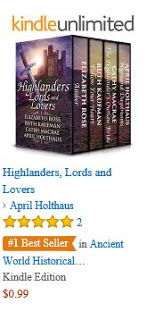 As of this writing, Highlanders, Lords and Lovers, the new boxed set with my second medieval FOLLOW YOUR HEART, has these Amazon rankings:
As of this writing, Highlanders, Lords and Lovers, the new boxed set with my second medieval FOLLOW YOUR HEART, has these Amazon rankings:
- #538 Paid in Kindle Store (out of nearly 4 million e-books!)
- #1 in Books > Romance > Historical > Ancient World
- #2 in Kindle Store > Kindle eBooks > Romance > Historical Romance > Scottish
- #3 in Kindle Store > Kindle eBooks > Romance > Historical Romance > Medieval
In the UK, HLL is
- #1 in Books > Fiction > Romance > Historical Romance > Scottish
- #1 in Kindle Store > Books > Romance > Historical Romance > Scottish
- #4 in Books > Fiction > Romance > Historical Romance > Medieval
And I’m currently ranked #63 out of Amazon’s Top 100 Historical Romance Authors, up from #68 this morning! (You have to grab screen shots, because rankings are updated every hour.)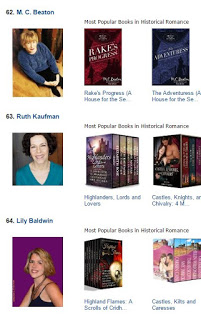
I’m honored to have my second book be part of a set that includes books by the multi-published Cathy MacRae, currently #2 in Top 100 Historical Romance Authors, Elizabeth Rose, who’s #6, and April Holthaus at #38. I’m sure their high ranks attract more readers to our set. We’ve all done some social media, held a fun Facebook party, and took out some ads to help get the word out.
It’s not always clear why some new releases languish while others rise to the top. Readers’ interest in the combination of the writing, setting, plot, the mix of authors and/or books in a boxed set, the title, cover, and/or alchemy of advertising, marketing and promotion for one book or set can’t easily be duplicated in another. Some new releases catch the tide of Amazon’s algorithms, which then propels them even higher. There’s no way to predict how long success will last.
I hope readers are enjoying my first two books as I get ready to release #3.

